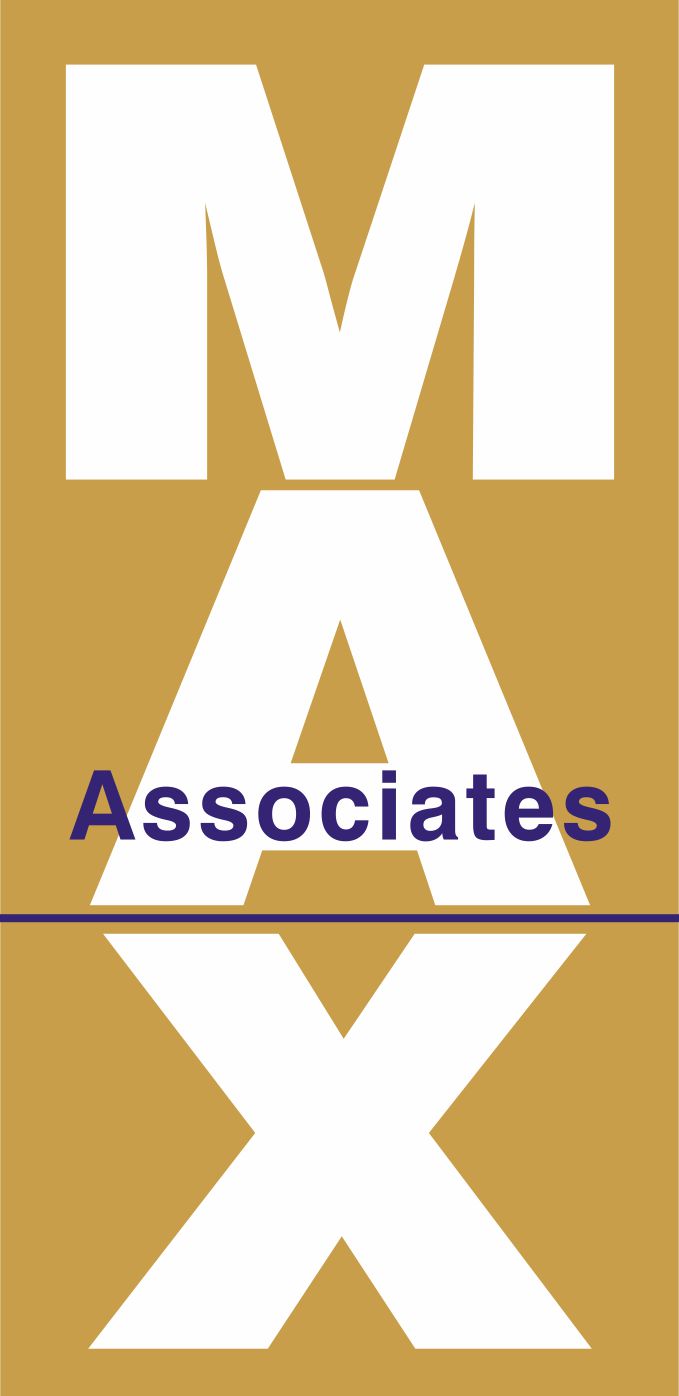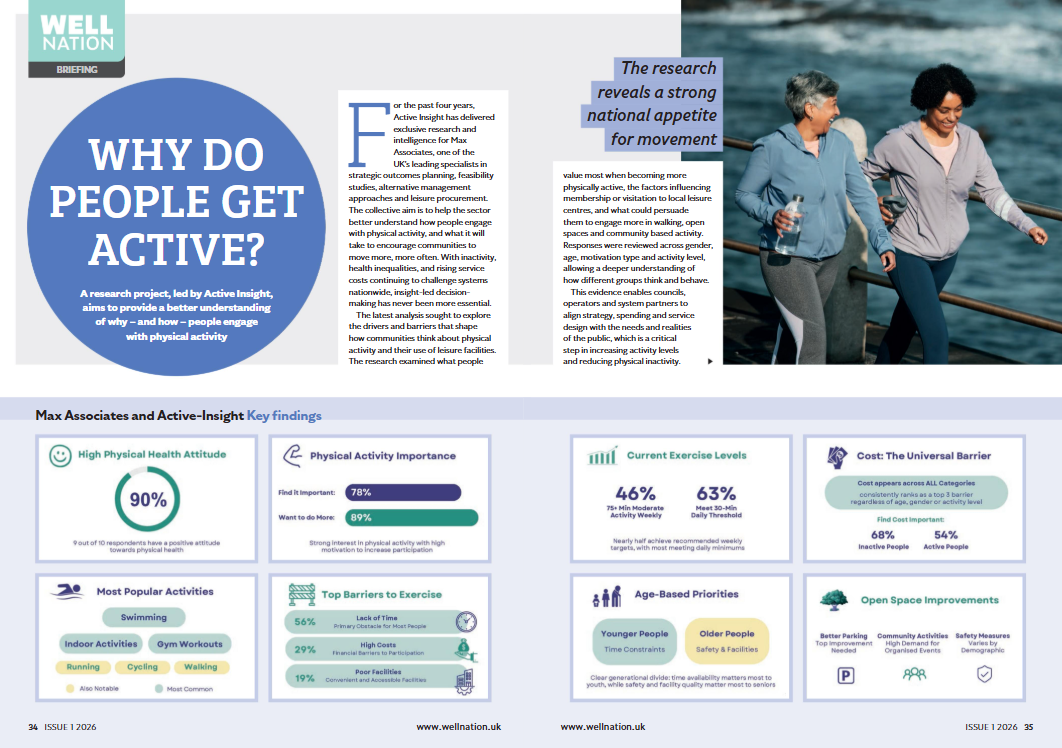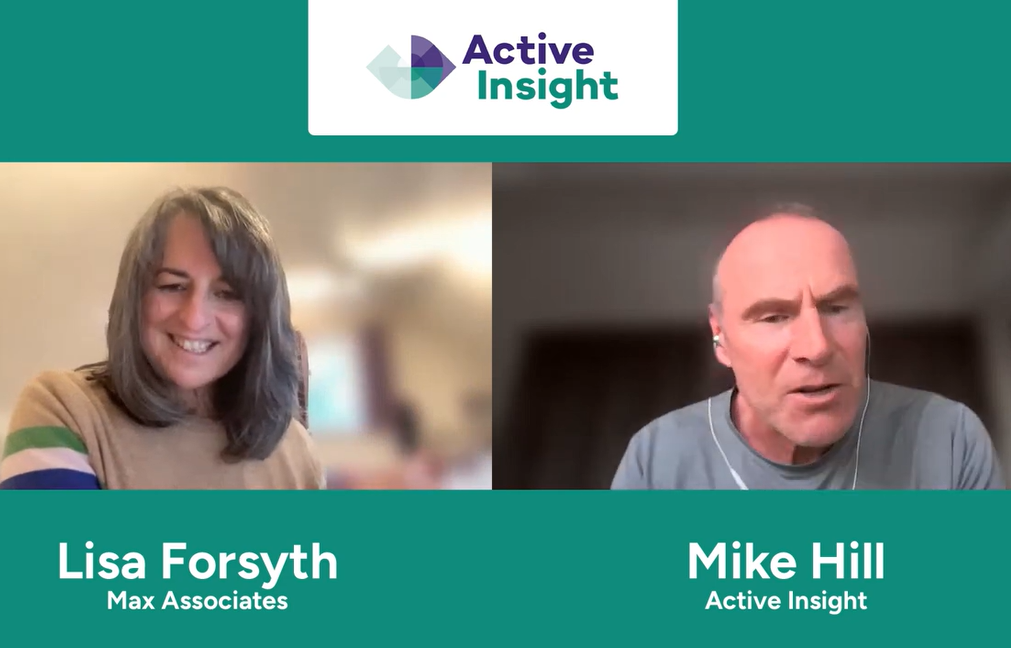New research from Active Insight has revealed strong public support for physical activity across the…

Lisa Forsyth explains what Government VAT changes mean for local authority leisure services
In March this year, HMRC announced a significant change to the VAT treatment of Local Authority Leisure Services that could add hundreds of thousands of pounds onto revenue lines.
Prior to March 2023, local authorities managing in-house leisure centres were required to treat services such as gym memberships and other facility visits as business activities for VAT purposes and pay VAT to HMRC from the income. Now, a revised treatment of VAT states these services are classified as non-business supplies for VAT purposes. This means local authorities pay no VAT on their income, as well as reclaiming all the VAT they incur on the related costs (revenue and capital) unconditionally.
Lisa Forsyth, Director at Max Associates, states: “This is indeed positive news for many local authorities. According to information supplied by The Leisure Database Company, currently more than 20 per cent of leisure facilities are owned and managed in-house by local authorities across the UK. Qualifying local authorities do not need to take any action, the transfer of VAT payments are automatic, resulting in an immediate financial uplift.
“For many local authorities struggling to manage the escalating operating costs of leisure services due to increasing energy costs, this will be welcome news. It also gives non-charitable local authority owner/operators comparable advantage to their not-for-profits and charitable trust counterparts. As a result, when management contracts come up for renewal, we are likely to see more local authorities seeking advice on the VAT and other tax and legal aspects before deciding on the future management of these services.
“At Max Associates, we have been advising several councils, who have mixed delivery models in their areas. For example, Bournemouth, Christchurch and Poole has recently been amalgamated and has a mix of in-house, local trust and external operator models. This change in the treatment of VAT is a significant contributing factor in the financial analysis of how to manage a united leisure portfolio moving forwards. Similar reviews are taking place across the South and East Lincolnshire Partnership, Stroud, Gedling and North Northamptonshire.
“Over the last thirty years, governance structures, economies of scale and commercial approach meant many local authorities favoured outsourcing leisure services to gain financial benefits, increased throughput and enabling investment into ageing facilities.
“Back in 2011, the Localism Act granted local authorities new powers to trade and we have seen a steady rise in the creation of LATCos (local authority trading companies), established to manage leisure services as a result.
“With this most recent HMRC revision on the treatment of VAT and the impact of Covid on the market, local authorities seeking closer alignment of their leisure service to health outcomes, it raises the question: are we seeing the beginning of the end of the outsourcing of leisure management services?”
Lisa goes on to say: “Some may look at this as another reason to bring services back in house, however when you fully understand the significant time and resource and other cost factors which are affected, a balanced assessment should always be made. Authorities need to consider their resources, impact on staffing and pension costs, ability to be agile in a competitive market, economies of scale they can achieve and how commercial the culture of their organisation is before making any decisions.
Where local authorities fully understand the outcomes, they need the service to achieve, the financial parameters they are working within, their own capacity and skill set, they can then determine the most suitable delivery model for their leisure services.”
Max Associates has been trading for 20 years and is a leading leisure management consultancy, supporting local authorities and councils across the country to optimise the management of leisure services.
Mas Associates works closely with leading public sector tax advisor, PSTAX. Nick Burrows, Director at PSTAX states: “This is a rare case of an unqualified win for local authorities. Not only will most of their leisure centre income be VAT-free, but their VAT costs related to leisure services will still be fully recoverable. Also, local authorities can make a one-off refund claim for VAT they have paid to HMRC in the last four years. PSTAX is the VAT and tax advisor to over 250 local authorities, and we have been helping many with these changes and the four-year refund claims they are due.”
The change in the treatment of VAT with regards to the provision of leisure services is the result of challenges made by several local authorities (Midlothian Council, Mid-Ulster District Council and Chelmsford City Council) dating back to 2020, which led to consideration by the courts. Litigation has now concluded. The courts have found that local authorities’ leisure services are provided under a statutory framework and can be treated as non-business for VAT purposes.
Lisa concludes: “The change in litigation is encouraging and shows, when a strong argument is presented, policymakers will listen and legislation can be amended. This change will have a hugely positive impact on many local authorities and highlights the importance of the sector continuing to lobby government and HMRC to ensure regulations a fair and just.”
To learn more about the recent HMRC announcement and discuss how it could impact the management of leisure services, get in touch with Max Associates via email: info@maxassociates.com or telephone the team on 07724 001773.
To contact PSTAX about the VAT changes and refund claims, email Nick at: nick.burrows@pstax.co.uk.
Legal ruling scraps VAT on gym memberships for councils in the UK (healthclubmanagement.co.uk)
Changes to VAT treatment of local authority leisure services – GOV.UK (www.gov.uk)




